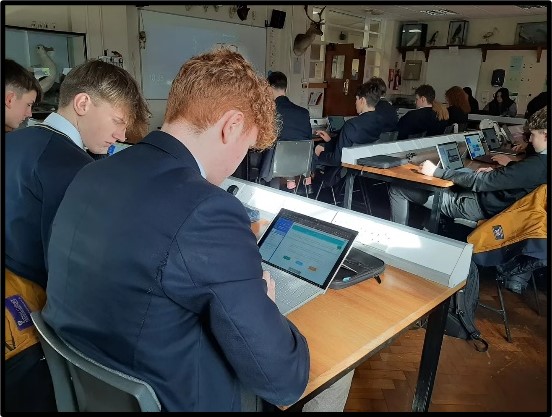Shrewsbury
Teaching & Learning Fortnight takes classrooms to 'next level'
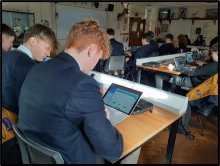
Educational technology in the classroom supports exceptional teaching, it does not replace it. Since the onset of the pandemic Shrewsbury teachers have been empowered to be creative and take risks with technology in both the remote and physical classroom setting.
It is sometimes taken for granted that technology is genuinely transformative when it comes to teaching and learning. The extent of digital ‘upskilling’ since 2020 has been tangible across all areas of the curriculum. As we increasingly enjoy a return to ‘normality’ in the classroom we felt this term we should take the opportunity to use our dedicated ‘Teaching & Learning’ focus to reflect on technological innovation in our classrooms and identify skills and competencies we are ready to develop to the ‘next level.’
Building upon the foundation and successes of Michaelmas’ Teaching & Learning Week with its deliberate emphasis on communication skills we decided to centre this term’s pedagogical focus on five core academic skills – assessment, creativity, mastery, collaboration and research. Shrewsbury teachers were encouraged to plan elements of lessons to develop these competencies using a range of specially selected digital apps which may allow for more effective delivery and the targeted development of the core academic skills duly identified.
The image below gives a sense of the rationale and suggested apps pertinent to developing summative and formative assessment strategies in the classroom:
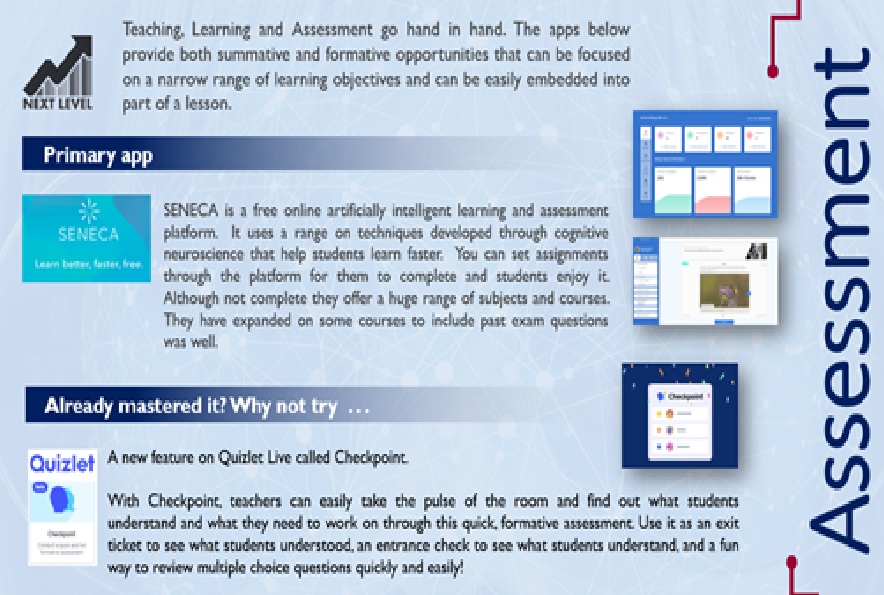
Across the fortnight there was a hive of activity in a range of different classrooms engaging with each of the five key themes and suggested digital applications. The list below provides just a sample of the type of activity undertaken in a range of different subject areas…
- D&T staff have been integrating StormBoard (a project planning app) into lessons to enable pupils to more effectively plan their assignments. The app allows for collaborative planning using a range of media alongside the sharing of video links and evaluative notes.
- Biology have been making proactive use of Seneca as a rapid formative assessment tool for pupils following the February Exeat. The quick gathering of data allowed pupils to identify areas of weakness ahead of attending future clinics in the subject.
- Chemistry Top Schools have benefited from use of Educake to take a quick check of pupil understanding using the in-app list. Pupils can also use Educake to generate their own self-assessment on any topic from the syllabus.
- Economics students have enjoyed using Wakelet to independently produce interactive diagrams concerning current affairs in macroeconomy.
- Photography A-Level students have used Wakelet to add images and resources for each syllabus topic as they undertake revision.
- The English Faculty have developed an interactive timeline to provide A-Level students key context for American Literature. The interactive nature of the app provides for links to events, critical articles, videos and images.
- GCSE Latin students were enthused by their use of Blooket as a way of revising key vocabulary. They enjoyed the ‘Gold Quest’ element and the gamification elements of gathering ‘gold’ and stealing it from others! Pupils accessing Online Supported Learning were also able to proactively participate in the activity.
The mastermind behind the range of digital tutorials and training opportunities for each app was our very own Head of Digital Learning Mr Exham who is considerably adept at making the complex accessible for staff and students alike! Mr Exham’s YouTube channel is a treasure trove revealing the sheer range of educational technology applications available to augment the classroom experience of our students at all levels and areas of the curriculum.
H.G. Mackridge (Head of Academic Innovation), R.A Kowenicki (Deputy Head Academic), H.S.M Exham (Head of Digital Learning)

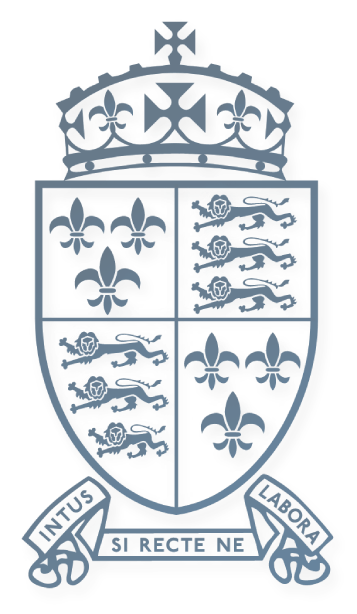










.png&command_2=resize&height_2=85)




.JPG&command_2=resize&height_2=85)



